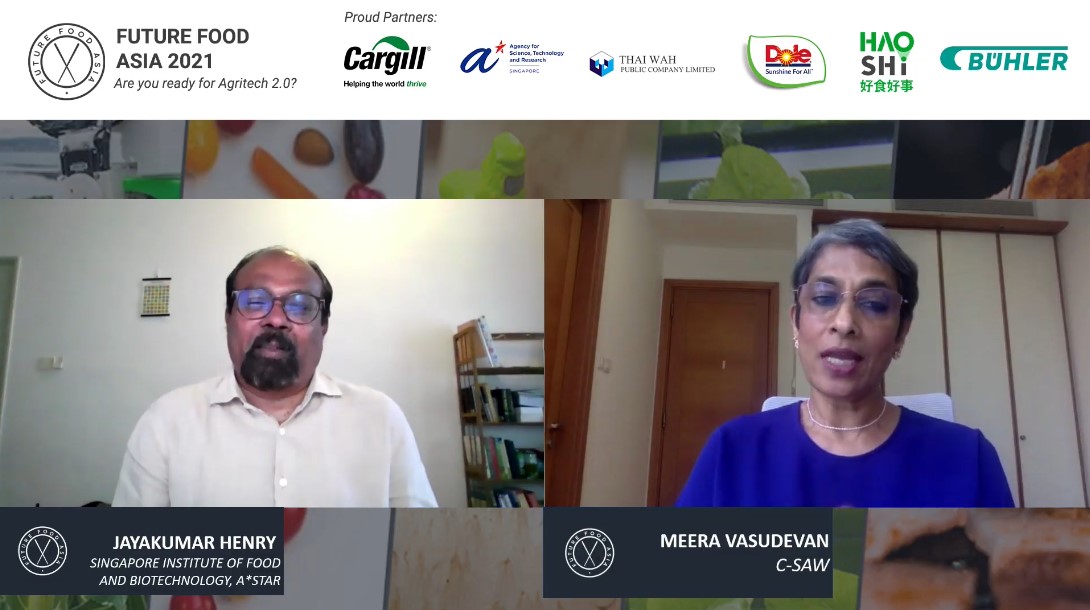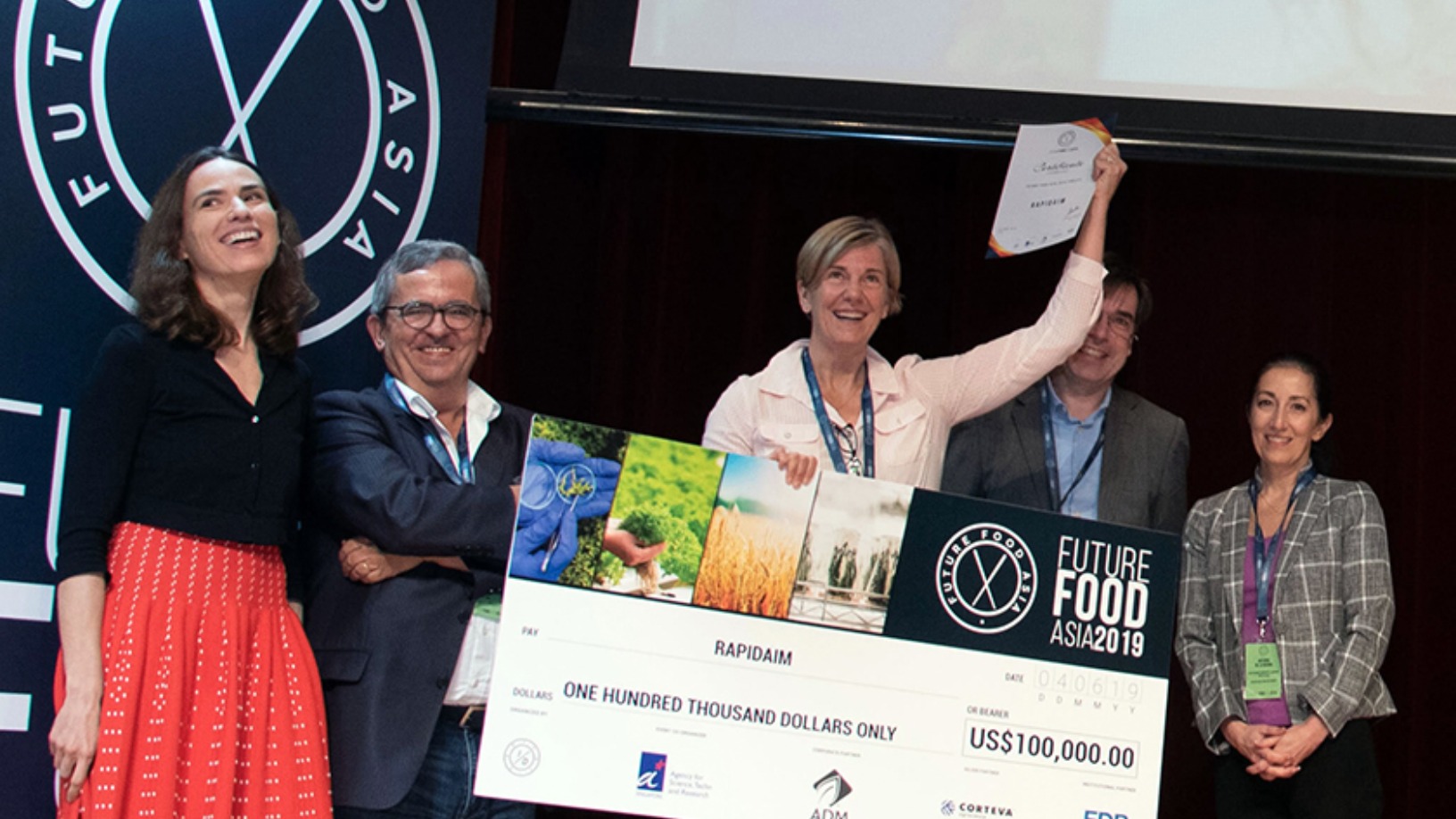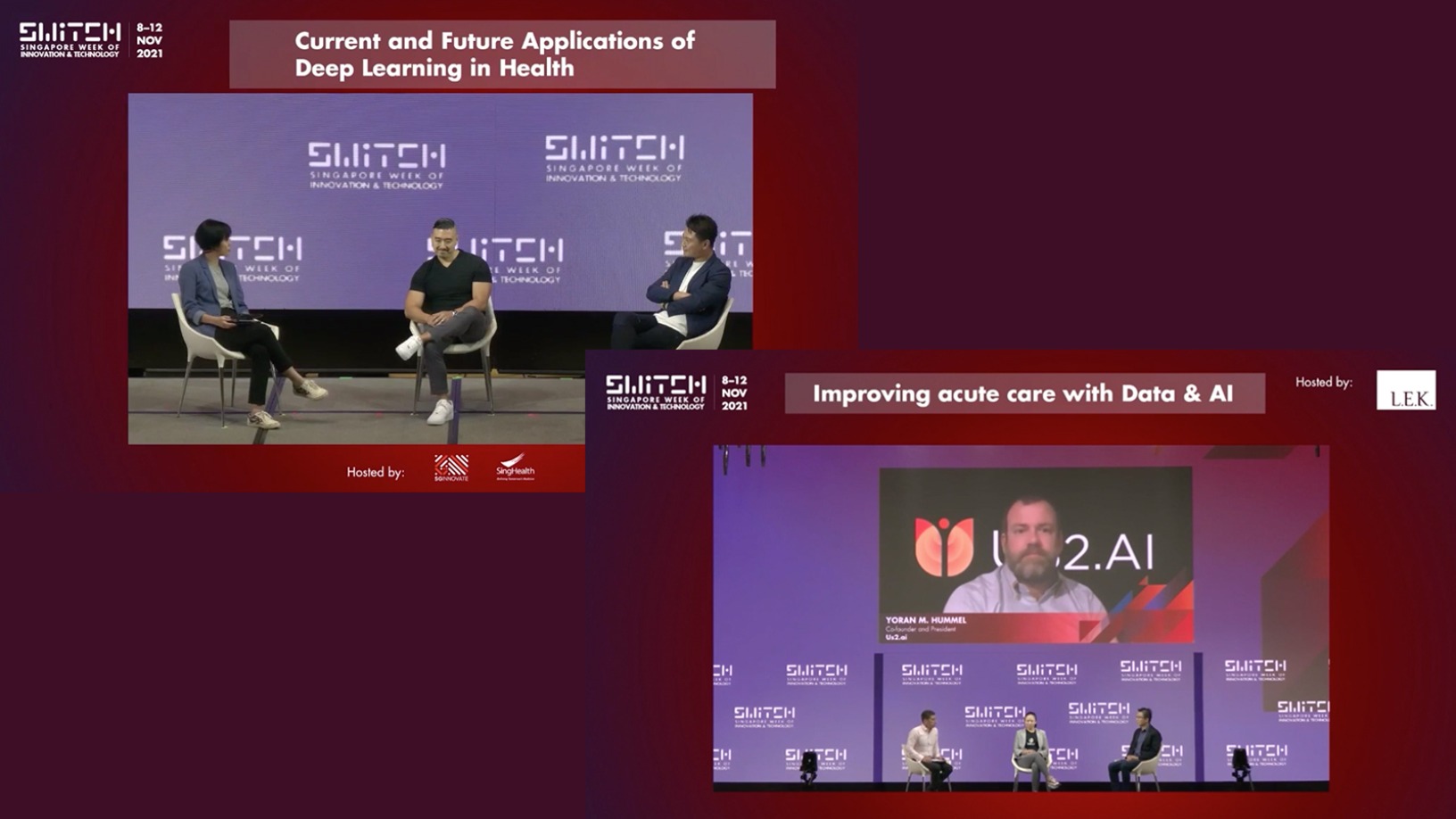Can we vaccinate plants against diseases? How do we harness agriculture to save the environment? Which technologies will help us solve the problems with livestock farming? These are some of the questions being answered at the fifth edition of the Future Food Asia conference, which kicked off yesterday.
Isabelle Decitre, CEO and founder of the conference organizer ID Capital, opened the event with a preview of the topics to be discussed during the five-day conference, ranging from the latest in alternative proteins and agricultural practices to impact investing and regenerative agriculture.
“Agrifood tech has arrived at an inflection point, and over the next five days, you will know better what we are talking about,” Decitre said. She recalled that when Future Food Asia was first held in 2016, an agriculture industry executive told her that the biggest innovation in agriculture in the preceding decades was air conditioning in tractors. “I would hope we have moved beyond that stage,” she said.
The first day of the conference saw the celebration of agrifood tech going mainstream and discussion on associated issues. Speakers said the time is ripe to harness capitalist mechanisms to provide affordable, nutritious food for all. Still, startups and investors must take care not to rush, especially in the excitement surrounding IPOs.
Three startups also pitched their ideas: Sydney-based Bondi Bio, which is engineering cyanobacteria to produce useful chemicals using CO2 and sunlight; Indian startup Fasal, an AI-powered platform that provides accurate advice to traditional farmers; and South Korean company RE:harvest, which is upcycling byproducts of beer production into a healthy flour. These three startups and seven others are competing for the $100,000 Future Food Asia award. The winner will be announced on Friday, June 11.
Capitalism for good
With companies like Impossible Foods and Beyond Meat commanding multibillion-dollar market capitalization, private investors and corporations in the agriculture and food industries are waking up to the innovations offered by startups in the space. According to David Lee, president of NASDAQ-listed indoor farming company AppHarvest, there is no question that being in food and tech has become fashionable. "The world has realized there is a problem, and tech can be the answer," he said.
There is no question that being in food and tech has become fashionable
Lee, who left his position as CFO of Impossible Foods to join AppHarvest in January, discussed the potential for startups to harness the rising interest from corporations and investors to accelerate innovations in impactful technology. He encouraged companies to be more transparent about the technological advances in modern food production to earn consumers’ trust. He gave the example of genetically modified organisms, which have always been a part of agriculture but got a negative reputation.
“Instead of debating whether GMO is a bad word, we should open our eyes to every technology because the magnitude of the [food security] problem we face is enormous,” Lee said.

In a separate session, Jeyakumar Henry, senior advisor at the Singapore Institute of Food and Biotechnology Innovation at A*Star, highlighted the opportunity for startups in the agriculture and food industries to improve the nutritional content of the food we eat every day. He suggested that innovators and investors should join forces to create affordable yet nourishing food for most of the world’s population living in emerging economies. "Scientists and venture capitalists have a dual role in creating wealth and health," he said.
In a fireside conversation with Meera Vasudevan, co-founder of the wellness-focused agrifood firm C-SAW, Henry discussed how alternative proteins are revolutionizing food production. By combining elements from various food ingredients into modern products, food is now not only for sustenance and health but also for well-being. Vasudevan added that regulators need to be involved in developing alternative proteins to ensure that health and nutrition aspects are included in the development process.
Going public? Don’t rush
As major investors compete for the top spot in the agrifood tech market, some early players are also eyeing exit opportunities, including through IPOs and SPACs. Mohamed Nasser Ismail, Head of Equity Capital Markets at the Singapore Stock Exchange (SGX), advised startups and investors not to rush towards an exit.
“These industries [agritech and foodtech] are rapidly growing, but many companies are still trying to find their footing, both in terms of R&D and commercial viability,” Ismail said. While the public market is a convenient way of gaining access to the capital needed at this crucial stage, the company needs to consider whether it can stand up to the scrutiny that follows a public listing.
Eddie Grieve, GM of Listings at the Australian Stock Exchange, shared the sentiment in another panel session. “Our recommendation for companies is that they should stay private for as long as they possibly can,” Grieve said. He added startups should not think of going public before at least raising Series B funding.
The company needs to consider whether it can stand up to the scrutiny that follows a public listing
For Dan Pathomvanich, CEO of SET-listed Thai company NR Instant, preparation is key to a successful IPO. “You need to know how your investors want to exit; is it a trade sale or an IPO? If it’s an IPO, you should prepare at least 24 months in advance [of the listing],” Pathomvanich said. He advised startups considering an IPO to hire financial advisors and to be transparent with them.
Pathomvanich echoed Ismail’s warning about regulatory compliance costs and cautioned against going public if there are no strong reasons for it. “IPO should never be the end goal. It should only be a means to an end, and you should only choose an IPO if that really gets you towards where you want to go.”
For companies ready for a public listing, both the SGX and ASX offer a suitable destination for raising capital. Being a food-scarce country, Singapore is especially interested in innovative technologies in agriculture and food production. “The SGX stays competitive by aligning itself with the areas in which Singapore is interested, and we help companies in those areas become dominant in the region and in the world," Ismail said, noting that the city-state is targeting to achieve a 30% local food production target by 2030.
Meanwhile, Grieve said that the ASX has capital for growing companies that show promise, even if they are not yet profitable. He pointed to Australia’s pool of $2.1tn investable pension funds and the possibility of listing at earlier stages at a lower cost compared to bigger markets like NASDAQ and the New York Stock Exchange.
“It’s much better for a company to be a big fish in a smaller pond,” Grieve said.
CompassList is an official media partner of Future Food Asia 2021












